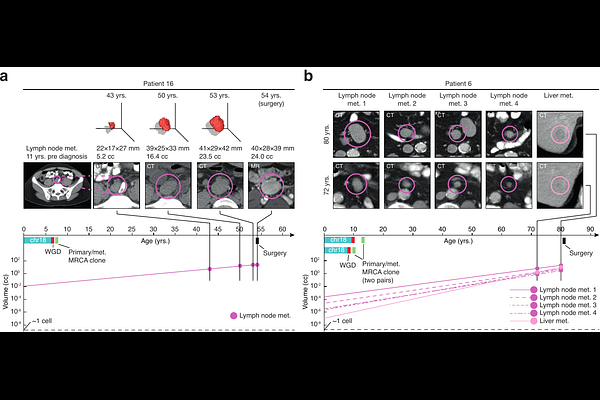Early initiation of small intestine neuroendocrine tumors

Early initiation of small intestine neuroendocrine tumors
Schiller, A.; Hultmark, A.; Lindberg, M.; Socratous, A.; Luijts, T.; Van den Eynden, J.; Elf, A.-K.; Rossi Norrlund, R.; Arvidsson, Y.; Elias, E.; Larsson, E.
AbstractSmall intestine neuroendocrine tumor (SI-NET) is typically diagnosed late in life and has several unusual properties, including low proliferation rate, low mutation burden, lack of driver mutations, as well as frequent multifocality, with multiple clonally independent tumors arising within a single intestinal segment. This sets SI-NET aside from other adult cancers and raises questions about the timeline of initiation and progression. Here, we investigate the evolutionary history of multifocal and unifocal SI-NET using whole genome sequencing and show that key molecular events and the establishment of metastatic tumor cell clones can often be traced back to childhood or adolescence. This was supported by re-examination of archival clinical imaging data obtained long before diagnosis, allowing longitudinal tracking of individual tumors up to 12 years prior. Metastases were detected at a high degree of consistency and estimated growth rates suggested several additional decades of tumor expansion. Collectively, our data support that slow progression over half a century or more may commonly precede SI-NET diagnosis in late adulthood.